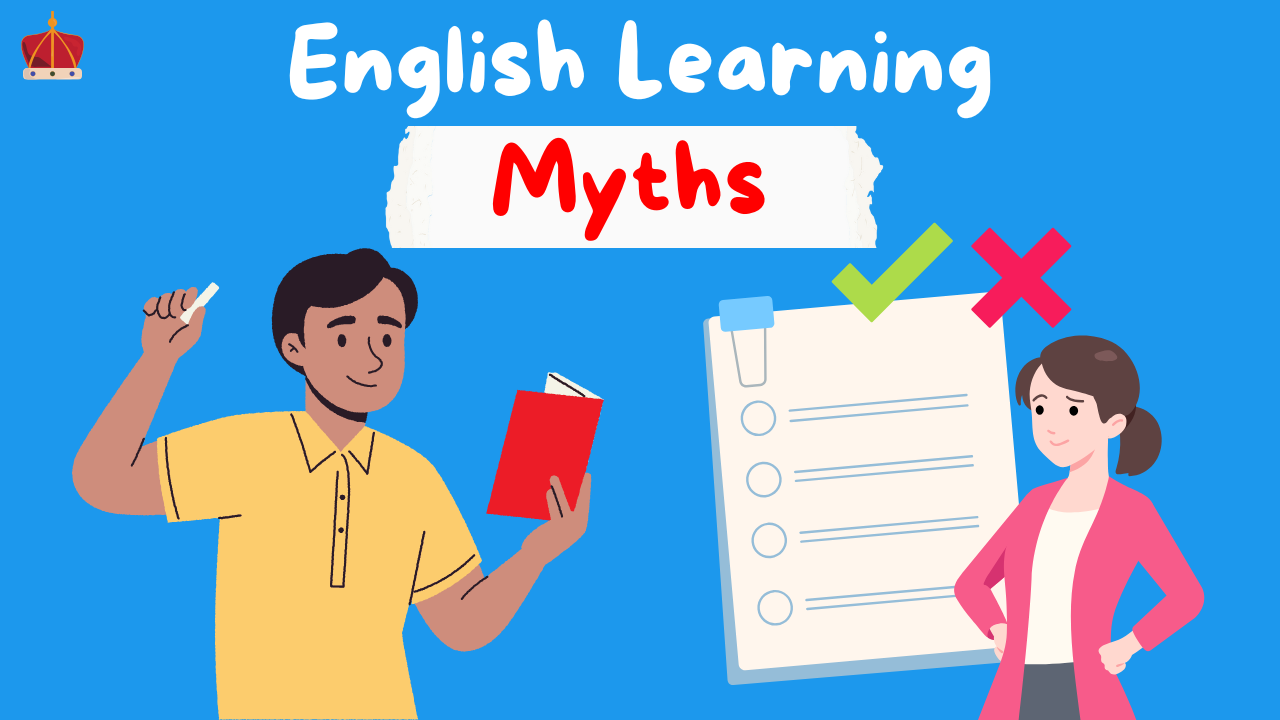
Debunking English Learning Myths: What Really Works?
Are you learning English but feeling stuck because of common myths? Many learners believe they must learn like a child, master grammar before speaking, or even move to an English-speaking country to become fluent. But are these really true?
In this blog post, we’ll explore and debunk some of the most common myths about learning English. By the end, you’ll have a better understanding of how to improve your English skills effectively!
Myth #1: You Must Learn English Like a Child
Many people think that children learn languages effortlessly and that adults should copy their method. While kids do learn through immersion, adults have different advantages. You can understand grammar rules, recognize patterns, and use memory techniques—things that children cannot do consciously.
The Truth: The best way to learn English is by combining input (listening and reading) with structured learning (grammar, speaking, and writing). Use your adult learning skills to your advantage!
Myth #2: Grammar is the Most Important Part of Learning English
Grammar is essential, but is it the most important thing? Not necessarily. Many learners focus too much on grammar and avoid speaking because they’re afraid of making mistakes.
The Truth: Vocabulary and exposure to English (listening, reading, and speaking) are just as important. Instead of worrying about perfect grammar, focus on communicating your ideas clearly. Over time, grammar will improve naturally.
Myth #3: You Must Live in an English-Speaking Country to Become Fluent
Some believe that living in the UK, USA, or Australia is the only way to achieve fluency. While immersion helps, it’s not the only path to success. Many fluent English speakers have never lived in an English-speaking country.
The Truth: You can create an English-speaking environment wherever you are! Use online resources, podcasts, books, and conversation partners to immerse yourself in the language daily.
Myth #4: Adults Can’t Become Fluent in English
A common fear among older learners is that it’s “too late” to learn English fluently. While children may have an advantage in pronunciation, adults are better at understanding grammar, vocabulary, and conversation skills.
The Truth: Fluency is possible at any age! The key is consistency, regular practice, and a positive mindset.
Final Thoughts: The Secret to Learning English Effectively
Don’t let myths hold you back! You don’t need to be perfect to start speaking, and making mistakes is part of the learning process. The best way to improve is by:
✅ Practicing English daily (even for just 10 minutes!) ✅ Surrounding yourself with English through listening, reading, and speaking ✅ Building confidence by speaking, even if you make mistakes
Remember, English learning should be fun, not stressful!
Want more tips? Visit easyenglishpodcast.com for free English learning materials and weekly newsletters to help you improve. Happy learning!

